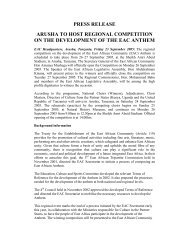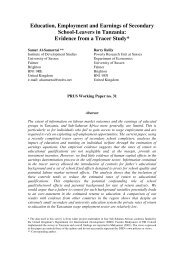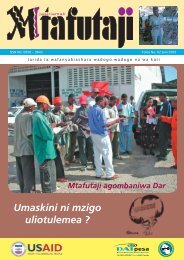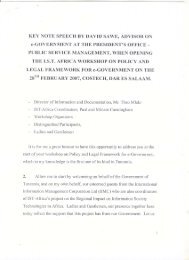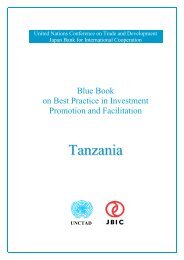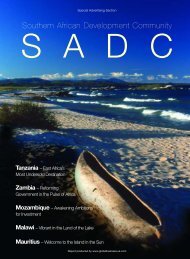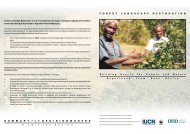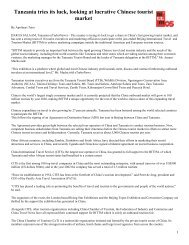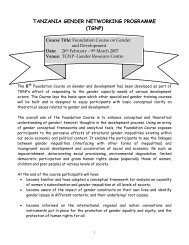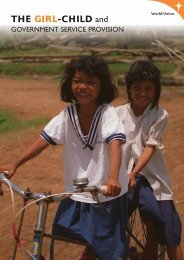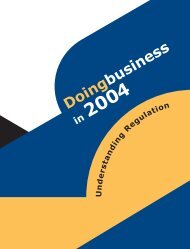Designing e-Government for the Poor - Tanzania Development ...
Designing e-Government for the Poor - Tanzania Development ...
Designing e-Government for the Poor - Tanzania Development ...
You also want an ePaper? Increase the reach of your titles
YUMPU automatically turns print PDFs into web optimized ePapers that Google loves.
158<br />
Philippines<br />
Title: Database of economic and social profile of Barangays<br />
Proposer: Mr. Mateo G. Montano, Assistant Secretary, Department<br />
of Social Welfare and <strong>Development</strong><br />
Country: Philippines<br />
Date: March 2005<br />
I. INTRODUCTION<br />
The poverty situation in <strong>the</strong> Philippines is <strong>the</strong> primary barrier to<br />
access to in<strong>for</strong>mation and communication technologies. Although <strong>the</strong> Philippines<br />
has made considerable advancements in ICT development, <strong>the</strong> Philippine<br />
e-government is still underdeveloped, and a number of vital services<br />
need to be put in place be<strong>for</strong>e <strong>the</strong> poor can benefit from ICT. In view of<br />
<strong>the</strong> fact that ICT projects require huge investments, fund constraints will<br />
still be <strong>the</strong> primary issue in <strong>the</strong> implementation of e-government projects.<br />
Despite <strong>the</strong>se, however, <strong>the</strong> national <strong>Government</strong> as well as some development-oriented<br />
local <strong>Government</strong> administrations has embarked on ICT<br />
development in pursuit of national development.<br />
II. ISSUES<br />
The Department of Social Welfare and <strong>Development</strong> (DSWD) is a<br />
line department and one of <strong>the</strong> key agencies under <strong>the</strong> Social <strong>Development</strong><br />
Sector of <strong>the</strong> <strong>Government</strong> of <strong>the</strong> Philippines, which includes <strong>the</strong><br />
Department of Education (DepEd), Department of Health (DOH), and <strong>the</strong><br />
Department of Labor and Employment (DOLE). Under its present mandate,<br />
<strong>the</strong> DSWD, among o<strong>the</strong>rs, shall:<br />
1. Take <strong>the</strong> lead role in social welfare and development sector<br />
planning; and<br />
2. Provide assistance to local government units (LGUs), nongovernment<br />
organizations (NGOs), o<strong>the</strong>r national government<br />
agencies (NGAs), people’s organization, and members of <strong>the</strong><br />
civil society in implementing social welfare and development<br />
programmes, projects and services. It is also mandated to implement<br />
community and centre-based programmes, involving<br />
specialized social services and statutory programmes such as <strong>the</strong><br />
maintenance of centres and institutions <strong>for</strong> street children,<br />
disabled, older persons, abused women and children, youth<br />
offenders, home <strong>for</strong> girls, and o<strong>the</strong>rs.<br />
The DSWD has a secondary mission which is to provide social<br />
protection and promote <strong>the</strong> rights and welfare of <strong>the</strong> poor and marginalized<br />
sectors of society through empowerment and capability building programmes.<br />
The efficiency of <strong>the</strong> DSWD to deliver development programmes would<br />
depend on <strong>the</strong> availability of updated data; and in<strong>for</strong>mation on planning,<br />
development, implementation of programme, and projects <strong>for</strong> <strong>the</strong> sector.



